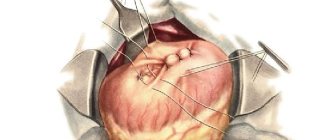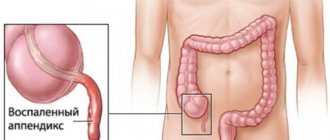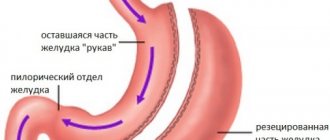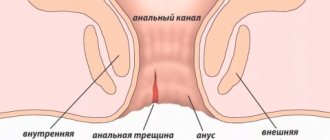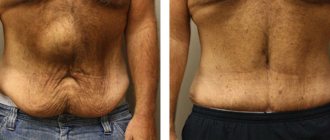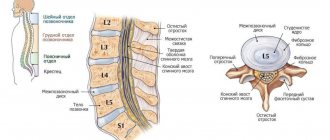The main cause of obesity is common overeating. A person consumes much more calories from food than he needs, and the excess is stored in fat cells. To get rid of excess weight, you need to reduce the amount of food you consume. To do this, it is necessary to adjust the diet and change the unhealthy eating behavior that has developed over the years. In parallel with this, you need to increase your daily calorie consumption by increasing your physical intake. However, in rare cases of advanced complicated obesity, doctors recommend surgical treatment, one of the options is bypass surgery.
What is gastric bypass?
This is a stomach reduction surgery.
A small pouch is created in its upper part, containing the required minimum of food (approximately 30 ml). From the pouch, food bypasses the main part of the stomach and enters the small intestine. The operation is usually performed using a laparoscope. The stomach reduced by bypass fills much faster, so the person feels full, eating much less than he ate before the operation. Fewer calories enter the body, the consumption of already accumulated fat begins, and weight decreases.
Bypass surgery is prescribed only in extreme cases, when there is a severe stage of obesity, and the person can no longer lose weight naturally. Typically, patients in this condition have a lot of serious health problems, and surgical treatment is vital for them.
Bypass surgery is a full-fledged invasive intervention with all possible negative consequences. In addition, after it is carried out, the body is forced to work in an unnatural mode (part of the stomach remains unused). Therefore, unless there is an urgent need, for example, just for quick weight loss, such a procedure is not carried out.
What are the advantages of gastric bypass over other types of bariatric surgery?
In addition to gastric bypass, there are other options for barytric surgery performed for severe obesity. These include sleeve resection. In this operation, part of the stomach is removed. It becomes like a sleeve, almost no different in thickness from the small intestine. It is carried out laparoscopically and ensures weight loss of 60-70%.
Another well-known method is the installation of a balloon in the lumen of the stomach. Inside the stomach it expands and fills a significant part of it. After this, the person, as with a smaller stomach, becomes full faster. The balloon must be removed after six months. It is assumed that during this time a person gets used to eating small portions. In some cases, ballooning is used as an intermediate stage of treatment, followed by more radical measures.
A fairly popular method is bandaging. With it, a bandage is placed on top of the stomach - a holding ring that divides the stomach into the upper and lower sectors. Food fills the upper part of the stomach, and a feeling of satiety appears, after which it enters the intestines through the lower sector. This method ensures weight loss by 50%. Nowadays it is rarely used, as more effective ways to reduce the volume of the stomach have appeared.
Gastric bypass, compared to other popular bariatric intervention techniques, is a rather complex but very effective procedure. It provides a higher percentage of weight loss. Today, shunting is used more often than other methods. If the operation is performed correctly, the postoperative period is quite easy. The cost of bypass surgery is higher than other methods, but it is consistent with the level of effectiveness.
Principles of a balanced diet after bariatric surgery
It is important to remember that bariatric surgery is surgery on the gastrointestinal tract. It changes the functioning conditions of the digestive system, and nutrition after surgery has some features. Your doctor will provide you with an individual diet plan.
General recommendations to follow:
- Protein is the main component of the diet. You must consume at least 60 g of protein per day. It is found in sufficient quantities in meat (turkey breast, chicken, fish fillet, beef, pork), low-fat cheese, cottage cheese, eggs, and peanut butter.
- Don't skip meals. Frequent, small meals will prevent stomach overfilling and improve metabolic processes.
- Eat only at the dinner table, do not rush.
- Place small portions on plates. Cut food into small pieces and chew thoroughly and slowly. Use small dishes and baby spoons to avoid overeating. Stop as soon as you feel full.
- Drink more fluids throughout the day (6-8 cups). Avoid carbonated, high-calorie drinks and caffeine. Drink at intervals of 30 minutes before or after meals, this will help prevent nausea and vomiting.
- Take a daily vitamin and mineral supplement (multivitamin, calcium citrate), but check with your doctor first. Additionally, vitamins B12, D, and iron may be required.
Remember that a balanced diet after bariatric surgery is not just a diet, but a new way of life. In order to lose weight, healthy habits must become an integral part of your life.
Gastric bypass: when indicated
The procedure is indicated for men and women aged 16 to 60 years with advanced obesity. It is prescribed to people who have been unsuccessfully struggling with excess weight for a long time and at the same time have health problems that require urgent normalization of body weight. For example, if a person develops diabetes mellitus due to obesity.
Bypass surgery is considered to be the most reliable treatment for patients with severe obesity and type 2 diabetes. This is explained primarily by the fact that after the procedure a person eats less and his weight decreases. In addition, the upper section of the stomach, which remains operational after bypass, is characterized by more intense absorption of carbohydrates, and when a person eats sweets, which are fast carbohydrates, he experiences unpleasant sensations - nausea, dizziness, heartburn. Therefore, people with bypass surgery intuitively give up heavy consumption of sweets, and their glucose levels stabilize.
Indications for surgery
In 1991, the National Institutes of Health (NIH) provided a consensus statement on patient selection for bariatric surgery. Patients are considered candidates for Gastric Bypass surgery if they meet one of the following criteria:
- BMI (Body Mass Index) > 40
- BMI 35-40 plus one of the following obesity-related comorbidities:
- severe diabetes mellitus;
- Pickwick's syndrome;
- obesity-related cardiomyopathy;
- severe sleep apnea;
- osteoarthritis;
- lifestyle incompatible with severe obesity.
To be candidates for gastric bypass, patients must have a history of unsuccessful attempts to lose an appropriate amount of weight through controlled diet changes. Patients must also follow a postoperative diet and exercise.
Gastric banding
Speaking about gastric bypass, it makes sense to take a closer look at other alternative options for radically combating obesity. Not so long ago, bandaging occupied a leading position. The procedure was described in a nutshell above. Separately, it should be clarified that with banding, weight loss occurs rather slowly, and in case of hyperobesity it is not prescribed, since it does not have the desired effect. The advantage of banding is that it is reversible. That is, the bandage can be removed, and the body will continue to function normally. No organs are truncated during this procedure.
Laparoscopic sleeve gastroplasty
Another well-known surgical treatment option is sleeve gastroplasty. Usually performed using a minimally invasive method. During the operation, the patient's longitudinal part of the stomach, which makes up 75% of the entire organ, is removed. The remaining 25% of the stomach connects the esophagus and small intestine. The stomach secretes glerin, a hunger hormone. Once most of it is removed, glerin levels drop and the person eats less. This effect is enhanced by reducing the capacity of the stomach.
Sleeve gastroplasty has its advantages. Firstly, during its implementation, a foreign body is not introduced, as with ballooning and banding. Secondly, there is no restructuring of internal organs, as with bypass surgery. But this option is irreversible, that is, it is impossible to return the condition of the organs to their original state after sleeve gastroplasty. And after a few years, the patient’s weight may return again, then the operation will have to be repeated.
How is gastric bypass performed?
The patient, under general anesthesia, is minimally invasively injected with titanium clips, which are used to stitch the stomach along the line dividing it into the working and bypass parts. After this, an anastomosis is formed connecting the upper part of the stomach to the small intestine. The entire procedure requires 4 to 6 small incisions. During the operation, all manipulations are visualized on the monitor.
Due to the fact that only a few incisions are required to carry out the manipulations necessary for bypass surgery, the recovery process is quite fast. First, the patient is observed in a hospital setting, then continues to be treated on an outpatient basis until complete recovery. However, you will need to constantly see a doctor. After bypass surgery, you must take nutritional supplements and vitamins as prescribed by your doctor.
After the operation, the patient's appetite level sharply decreases, as a result, his portions will be significantly reduced. For some time, you may even experience an aversion to food. The first year after bypass surgery is contraindicated for women, and it is almost impossible to get pregnant. In the future, the patient can become pregnant, carry and give birth to a child without any complications.
Expected weight loss
After gastric bypass surgery, you experience dramatic weight loss within six months. Weight usually stabilizes approximately 18 to 24 months after surgery. During this time, a bariatric surgery patient loses on average 60–70% of their excess weight.
Research shows that it is possible to lose even 80% of excess weight. Although most gastric bypass patients will gain some weight back later, with a diet and exercise routine, the desired results will be maintained for a long time.
Preoperative fasting
In obese people, a lot of fat accumulates in the liver cells. It increases in size, so it can overlap the bypass area, which leads to the need to make more global incisions. To avoid this, patients are advised to follow a strict diet for a week before surgery. The fat in the liver cells burns quickly, and within a week the organ returns to normal size.
Fasting before surgery is also necessary so that all internal organs can be fully examined without difficulty. The less food there is in the digestive organs, the more accurate the data from ultrasound, gastroscopy, and other types of examination. In addition, complete fasting is often recommended by anesthesiologists on the eve of surgery. The patient does not need to know all the nuances of preoperative preparation; he should simply strictly follow all the doctors’ instructions without violating them.
Preoperative examination
Before the operation, a full examination is carried out, including a number of tests, as well as x-rays of the stomach and chest, gastroscopy, and ECG. If the patient has chronic diseases, consultations with specialized specialists are also needed. After all examinations, you need to obtain a physician’s opinion.
If the examination reveals health problems, the operation is postponed. In some cases, the operation is canceled altogether. For example, a cardiologist can prohibit it. Contraindications to bypass surgery are:
· pregnancy, lactation period;
· intolerance to anesthesia;
· presence of malignant tumors;
· respiratory tract diseases;
· problems with the cardiovascular system.
Contraindications
Contraindications for gastric bypass surgery:
- alcohol or drug addiction;
- serious mental disorders;
- decompensated stages of chronic diseases of the kidneys, heart, liver.
It is important to understand that bariatric surgery is only a tool to solve problems with persistent obesity. Patients who are not committed to long-term lifestyle changes may not be considered ideal candidates for this procedure.
Gastric recovery and side effects
After surgery, side effects such as diarrhea, constipation, and gag reflex may occur. When a person loses the habit of eating food quickly and in large portions, the negative consequences disappear. Patients are prescribed drugs that stabilize the functionality of the digestive organs. Water should be drunk in small portions, and no more than 1.5 liters per day. The most important thing is to learn to eat often in small portions.
The body recovers completely 2-3 months after surgery. For the first few hours you should not eat or drink anything. The body is maintained by infusion of a special saline solution. Next, the patient is given a drink, and after a few more hours, he begins to take semi-liquid food pureed into puree. Solid foods are introduced gradually. The person returns to normal eating in about 2 weeks.
The patient is observed in the hospital for 7 to 14 days. Before being discharged, he undergoes a follow-up examination. Subject to satisfactory results of tests and ultrasound, the person is sent home, where he must continue to follow all the recommendations of doctors.
Increased physical activity, stress and emotional stress are contraindicated for 2 months.
Dumping syndrome
Dumping syndrome is the body’s reaction after bypass surgery in the form of nausea and stomach pain to certain foods. The body mainly reacts to sweets, dairy products, and fatty foods. It is believed that this is a side effect that helps form good eating habits. It does not always occur, but quite often.
Fast weight loss
In the first months after bypass surgery, weight loss occurs too quickly. Intensive weight loss leads to deterioration of the skin and hair, decreased performance, and poor health. During this period, it is very important to adhere to the rehabilitation program recommended by your doctor.
Weight return
Frequent overeating and a sedentary lifestyle can lead to the stomach stretching and becoming too spacious again. As a result, the person again eats more than normal, and the weight returns. To prevent this from happening, you need to switch to proper nutrition, lead a healthy lifestyle, and play sports.
Preparation
If after the operation the patient does not adhere to the diet and exercise regimen recommended by the doctor, the small stomach will stretch and the weight will return - that is, the operation will not produce results. Therefore, at the preparatory stage, a nutritionist and a psychologist work with the patient.
To minimize the risk of possible complications, examinations are performed before operations. The patient is prescribed:
- fibrogastroscopy - examination of the stomach cavity using a microvideo camera;
- fluorography;
- ECG;
- blood tests - general, blood group and Rh factor, infections, biochemistry and coagulation.
In addition, consultations with an anesthesiologist, surgeon, endocrinologist, psychologist and therapist are indicated. If necessary, the oral cavity is sanitized.
Risks and complications
Bypass surgery carries the same risks that accompany any abdominal surgery. These include such phenomena as bleeding, infections, complications of the cardiovascular system, adhesions, intestinal obstruction, and much more. Complications of this kind occur extremely rarely. To reduce their likelihood to a minimum, you need to go to a good clinic (focus on reviews, not prices), strictly follow all the doctor’s recommendations, and approach the process of preoperative preparation and postoperative rehabilitation with all responsibility.
One week before surgery:
- exclude alcohol, flour and sweets from your diet;
- reduce fats to a minimum;
- eat no more than 1 serving of rice, potatoes and other starchy foods, sweet vegetables and fruits per day;
- in consultation with your doctor, stop taking medications that affect blood clotting;
- drink at least 1.5 liters of water per day.
On the eve of the operation, an early light dinner is indicated. The intervention is carried out on an empty stomach after a 12-hour fast. You need to stop drinking 2 hours before surgery.
